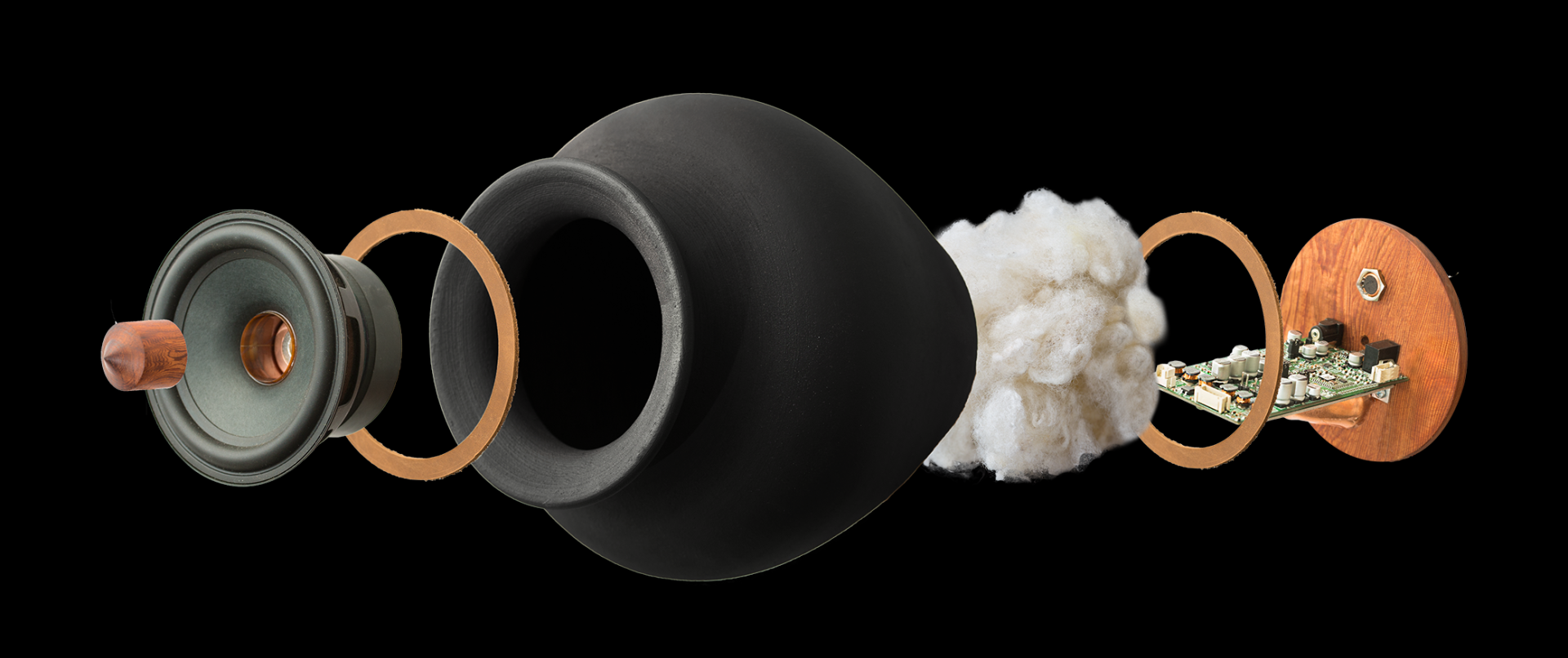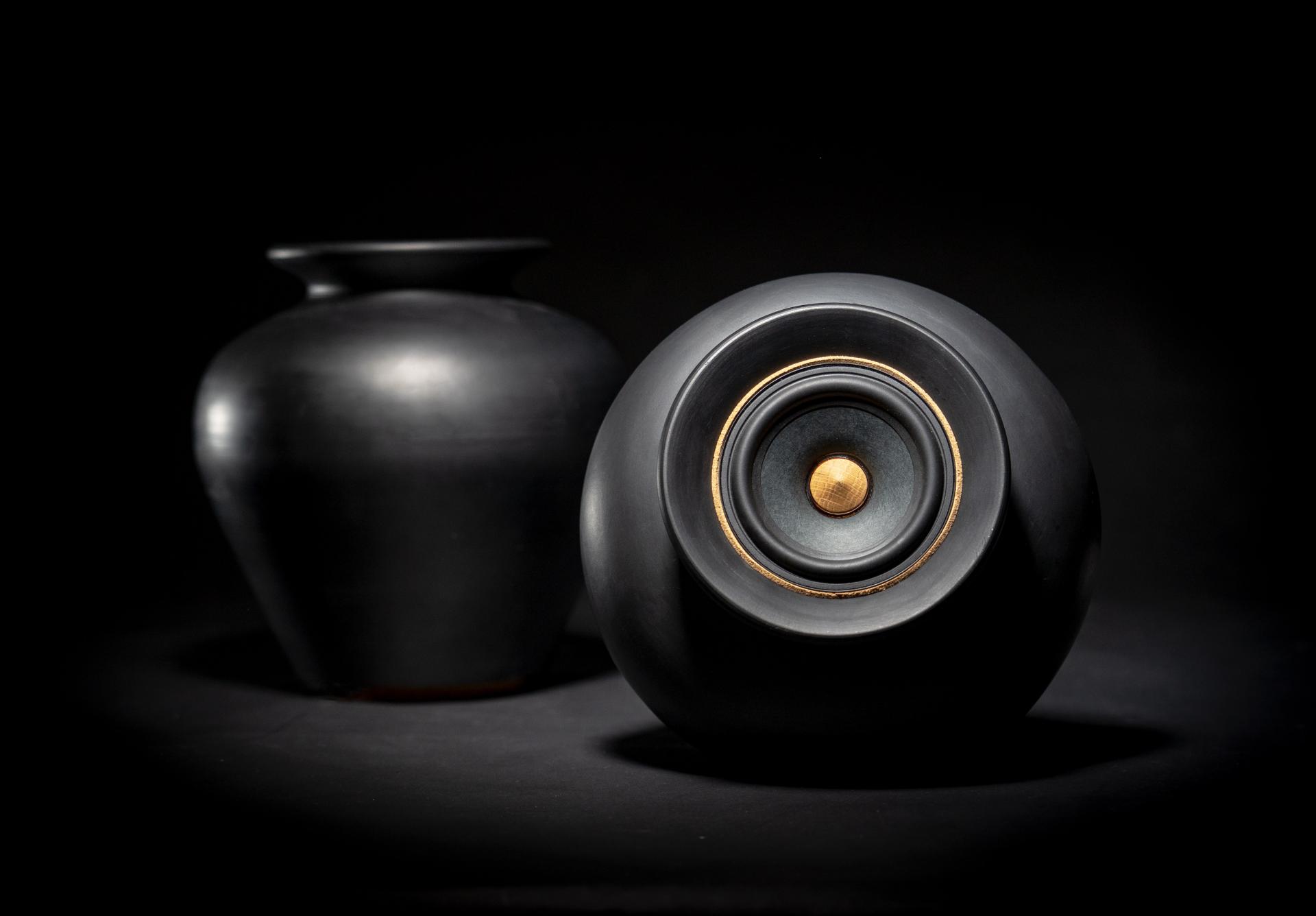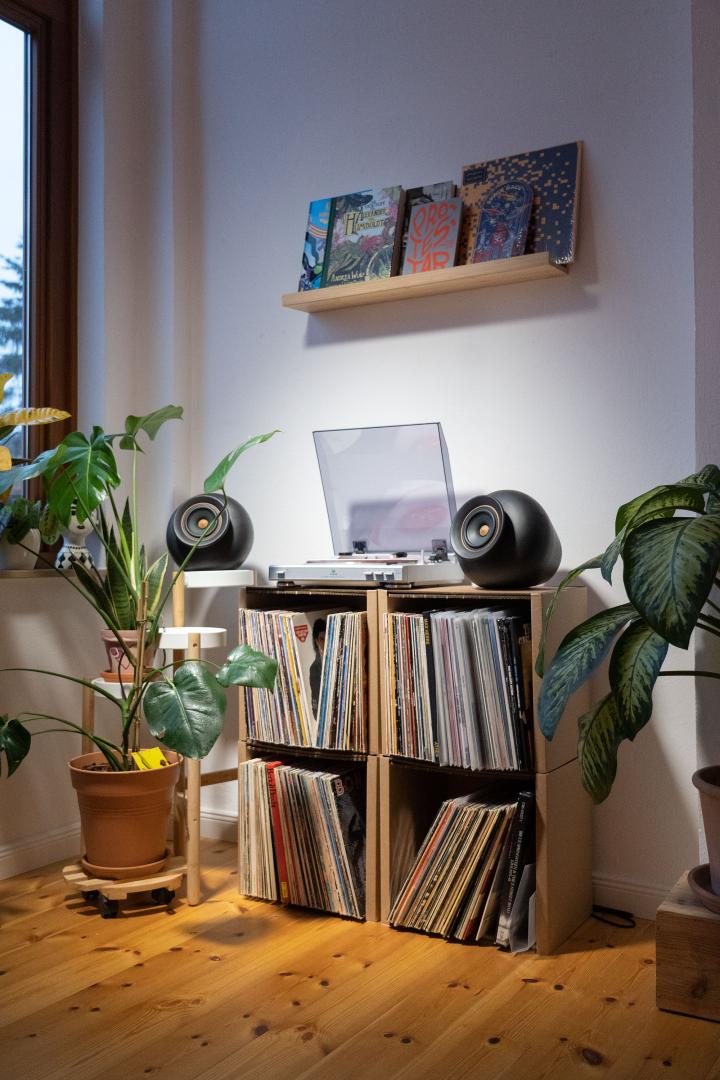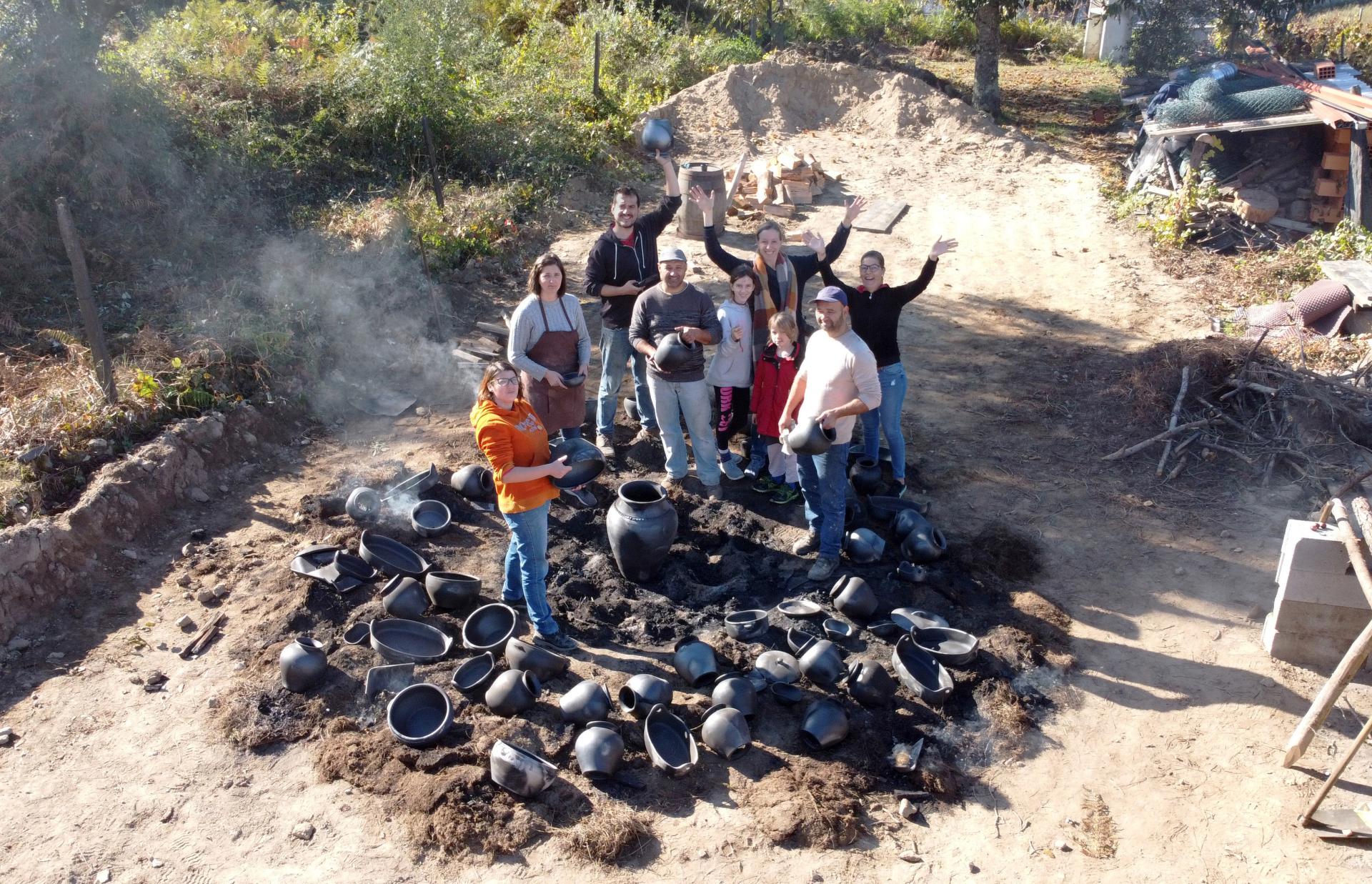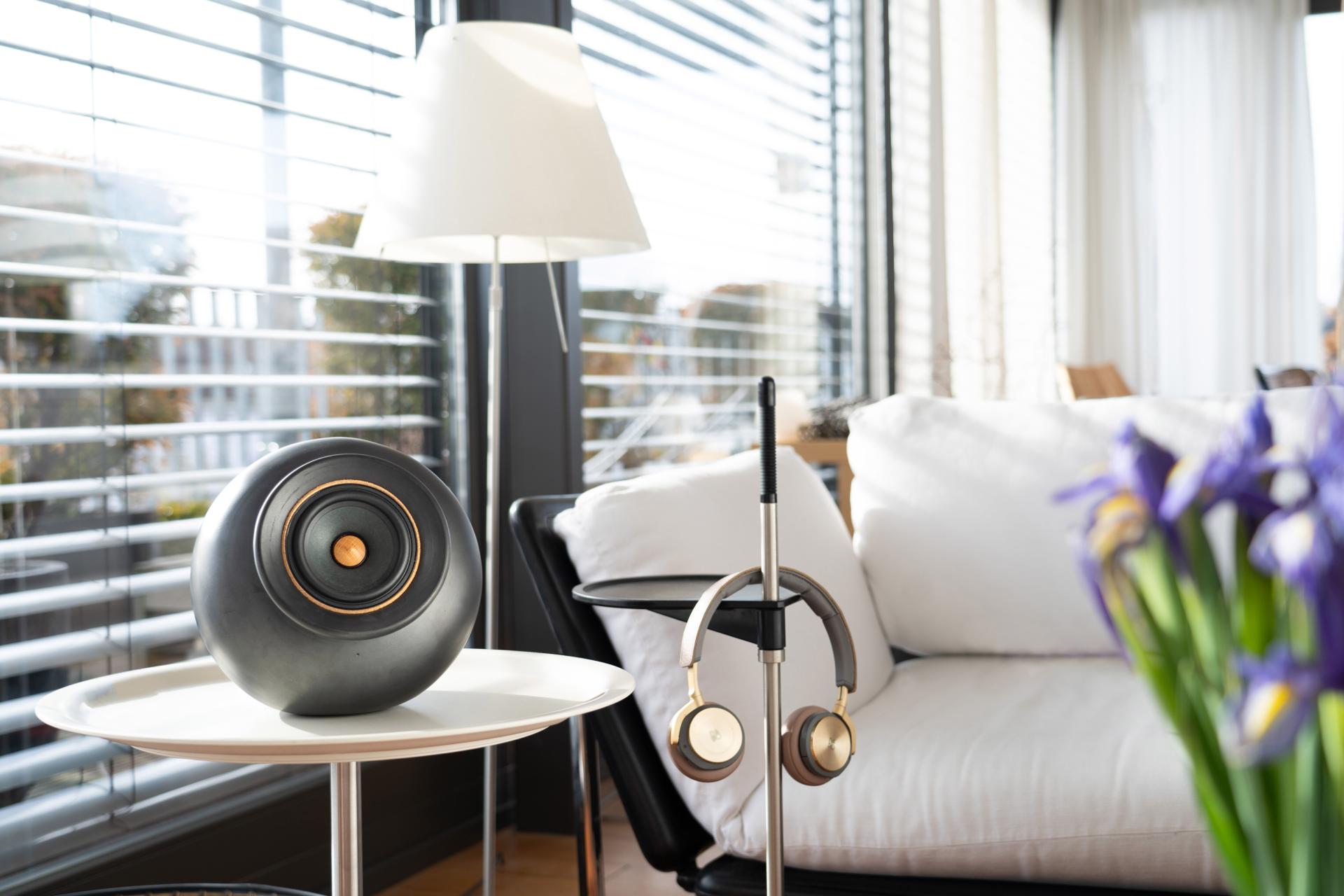Mapu Preto
Basic information
Project Title
Full project title
Category
Project Description
The Mapu Preto Speakers are the world's first active sound systems, made of clay and other low-impact materials like wood, wool and cork. They fuse the state of the art in amplification developed in Denmark, with ancestral craft techniques from the North of Portugal.
Geographical Scope
Project Region
Urban or rural issues
Physical or other transformations
EU Programme or fund
Which funds
Description of the project
Summary
Industrialization, and even more the massive introduction of plastics, have set a checkmate on traditional handicrafts in Europe! Production is frequently outsourced to regions with lower working and environmental standards, and natural materials with amazing properties are often left aside. As a consequence, traditional crafts have become obsolete in modern societies. Many workshops are closing down because craftspeople are lacking orders and disciples, while the lack of perspectives in rural areas is ultimately contributing to a rural exodus. All this is leading to an irreversible loss of intangible cultural heritage, ancestral knowledge and traditions!
So,... imagine we knew where all our products came from, and who made them! Imagine that regional low-impact materials find a purpose in contemporary high-tech products. Imagine that through our purchases, we could support craftsmen and keep cultural heritage thriving.
We believe that another kind of future is possible, where tradition and modernity can coexist harmoniously. We dream of a crafts revolution that gives back protagonism to traditional handcrafts in our industrialised world, building a bridge between ancestral knowledge and technology.
We aim to offer a disruptive, eco-efficient and socially sustainable alternative to current production methods and to reduce the carbon footprint associated with industrial production methods, by using alternative, low-impact materials, collaborating with small workshops and communities, and shortening the transportation routes.
Key objectives for sustainability
Our aim is to design and develop (contemporary, high-end) products that:
- make use of traditional knowledge and techniques.
- use underestimated natural, regional and eco-efficient materials
- are co-designed with the communities using the particular regional aesthetics and materials and therefor have an authentic ‘handwriting’.
- are unique, handmade pieces.
- offer a decentralised alternative to industrial mass-production
- prevent the (irreversible) loss of traditional crafts.
- maintain and create purposeful local jobs
- offer high quality, durability and the option to exchange and fix parts if needed
- offer more transparency to consumers and motivate them to seek another way of consumption
- showcase the potential of design to create a better world
- Inspire other companies to do likewise and foster another way of production
We have successfully implemented this methodology and brought to market products from Nacimiento, Chile and Molelos, Portugal so far. Our aim is to spread our methodology to further regions with distinctive crafts tradition, offering a local solution to a global challenge!
Key objectives for aesthetics and quality
(*please also see our answer above)
Our aim is to show that another way of production and consumption is possible!
The Mapu Speakers are an innovative and sustainable design solution, inspired in regional materials, craft-traditions and intangible cultural heritage of the particular place(s) of production. Every speaker is a unique, numbered piece of art, the hands that shape them and the fire in the kiln leave their traces. From a technological point of view, they are state-of-the-arts. Their acoustics and electronics have been developed by experienced engineers at Sound Hub Denmark, they are very user-friendly through wireless Bluetooth amplification, and their technology-based heart-piece can be easily implemented in further designs from other regions and production places in Europe.
We have already successfully implemented this methodology and brought to market products from Nacimiento, Chile and Molelos, Portugal so far. Our aim is to spread our methodology to further rural regions with ancient pottery tradition, creating additional series of speakers with a unique regional design identity, and offering local solutions to a global challenge!
We don’t want We don't want to compete to be the best speakers in the world, we want to cooperate to become the best speakers FOR the world!
Key objectives for inclusion
The way we are consuming and producing nowadays does not only destroy the environment, it also threatens our cultures!
We want to change these paradigms, and to collaborate with communities of craftspeople, to co-design with craftspeople integrating local knowledge, skills, traditions and materials, to create jobs for future craftspeople, and to help the crafts to thrive, and intangible cultural heritage to survive.
We have already developed products in two regions in Chile and Portugal, and will now bring our methodology to further regions that are facing the same challenges.
Through our products we aim to re-integrate the crafts in the global markets and to be able to make industrial products in non industrial, less developed regions.
The more open-source and universal we will get, the more regional, accessible and affordable we will become.
Now we need to find the right partners and funding to set up further satellite production places, because only together we can create real impact!
Results in relation to category
We are applying for the category ‘Regaining a sense of belonging’. Before working in Portugal, we produced a series of speakers in the potters community Nacimiento, in Chile. When we arrived there in 2016, only 8 of the former 30 workshops were still working, most of them close to retirement. The others had closed their workshops, and were working in a nearby factory instead. We produced a first series of speakers, which was quickly sold out! The innovative approach of our project brought a lot of media attention to the village and its crafts tradition, and the popularity and tourism increased rapidly. Our main potter could hire several new employees, and now also gives workshops and speeches on a national scale. But also the other workshops in the town could all profit from the increasing demand. But Chile is just one place like many… so we decided to bring our production to further places… By now we have finished the production of our second series MAPU PRETO from Molelos, Portugal. An ancient potters community, where nowadays only 5 of the many former workshops remain active. We work together with the brothers Lourosa, who took over the profession from their grandfather. They are both in their 40s and are the youngest remaining potters in town. Molelos is known for using beautiful distinctive techniques: ‘Barro Negro’ - black ceramics through oxygen reduction during the firing process, & ‘Soenga’ - a special firing technique in an open earth-pit that leaves unique, silver-grey marks on the ceramics (Unesco recognised). We are now starting to promote and sell this series, and aim to increase awareness about these beautiful, unique crafts, to increase the demand for pottery from Molelos, and ultimately, to contribute to a sustainable maintainance of these cultures and the formation of new potters in the region. We also plant 2 trees for every speaker sold to compensate CO2 emissions, and produce special artist series in collaboration with local NGOs.
How Citizens benefit
We co-designed and co-created our products with different crafts(wo)men form the places of production. Together we reflected traditions and crafts of the places, observed the environment and used the existing tools an d materials, and then created authentic products that spoke their own language and were a tribute to the region and its people.
What we could observe with this production methodology that we already applied in Chile and Portugal, is that it generated a change of mentality by breaking with the paradigms of what people thought could be produced (due to technical limitations) at a national/local level, and that it also clearly demonstrated that the regional crafts were not merely destined to be a souvenir.
This ultimately re-enforced a local identity and sense of belonging through a product and production methodology, totally made through the achievements of the hands, knowledge and materials of the region.
Our aim is that this involvement in a second step will lead to an upswing of local employment, economy, tourism, and the preservation of intangible cultural heritage. We want to replicate our methodology and to motivate others to do likewise to provide local solutions to global challenges.
From a consumer perspective, our aim is also to generate a change in the common purchasing behaviour which is based in importing goods like electronic products, and to produce them locally instead with identity-building aesthetics, natural materials and traditional techniques from your own country.
Physical or other transformations
Innovative character
We aim to re-think product design, materials and production methods. Our aim is to create decorative art objects with a technical purpose, that are produced in a decentralised way and help to keep local cultural heritage thriving. Therefore, the most innovative aspect of our work is probably the disruptive way of re-uniting crafts + technology, two apparently antagonic disciplines that have been moving apart since industrialization.
-We offer a eco-efficient, socially and culturally sustainable alternative to the production in the high-tec market. We challenge the centralised, energy-intensive and polluting production of plastic speakers and also provide an alternative to the use of wood and/or chipboard in the production of speakers.
-Our product breaks with the industrial production methodology, elaborating unique handmade pieces with a technique unheard of in this area, pottery.
- We accomplish state-of-the-arts electronic standards, with acoustics developed at Soundhub Denmark and collaborating with engineers from Bang& Olufsen.
-We decentralise the place of production of consumer electronics, moving it to its opposite extreme, small workshops in regions in development.
-We give individuality and uniqueness to a normally standardised and serialised industrial product.
-We use our visibility, special artist editions and premium products to generate additional funds to support the regions of production through social and environmental projects.
Learning transferred to other parties
Our project has demonstrated that a more inclusive, human, decentralized and eco-friendly production method is possible! Our aim is to replicate this way of doing in other cultural/economic regions of Europe. Since the very beginning, this project was conceived to migrate and to reevaluate pottery and crafts traditions around the world. Besides the collaborations with craftsmen cooperatives, we aim to also increase the collaborations with regional NGOs to maximize the social, environmental and cultural impact of our project.
But, we know that only together we can create real impact, and therefor also want to spread our methodology and to transmit our learnings to other interested parties. Together we can create alternatives to the current modes of low-cost mass-production abroad, together we can create transparent and meaningful low-impact alternatives and serve the different markets, products and regions.

